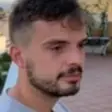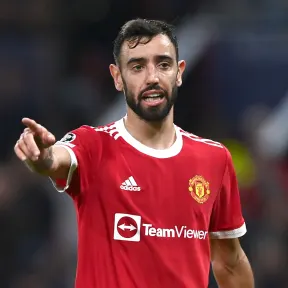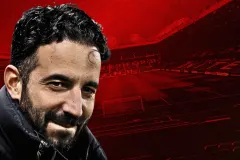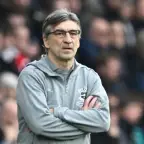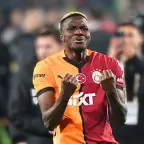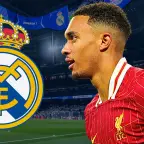Next Man Utd manager: Poch and Ten Hag? Why not Dyche?
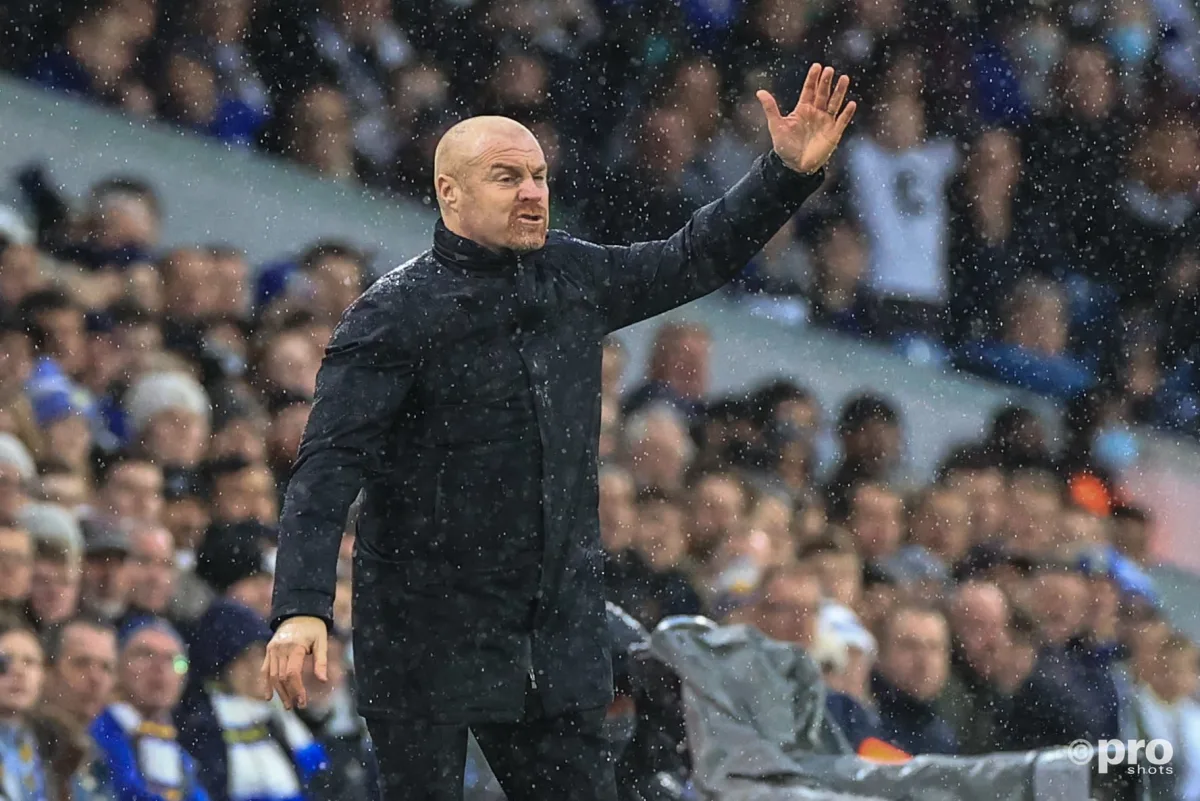
Sean Dyche is not a figure many would consider as a suitable candidate for Manchester United manager.
But for a man so greatly admired, just why not?
There is an upcoming vacancy in the dugout. Glamorous names such as Mauricio Pochettino, Erik ten Hag and Luis Enrique are reportedly on the five-man shortlist.
But why look to Paris or Amsterdam when Burnley is only 30 miles up the road?
Unfazed by ownership takeovers, lack of funds - or even snow - the gruff-voiced boss has been doing remarkable work in defying the odds for the past 10 years with the Clarets.
And yet, despite the shining resume, Dyche is never linked to top jobs, with the general perception being that his tactical blueprint would only suit a club such as Burnley.
Surely, it’s worth running up the flagpole, a hypothetical look at just what would happen if United, the side that’s held back by the spirit of their recent history, merged with straight Dycheism.
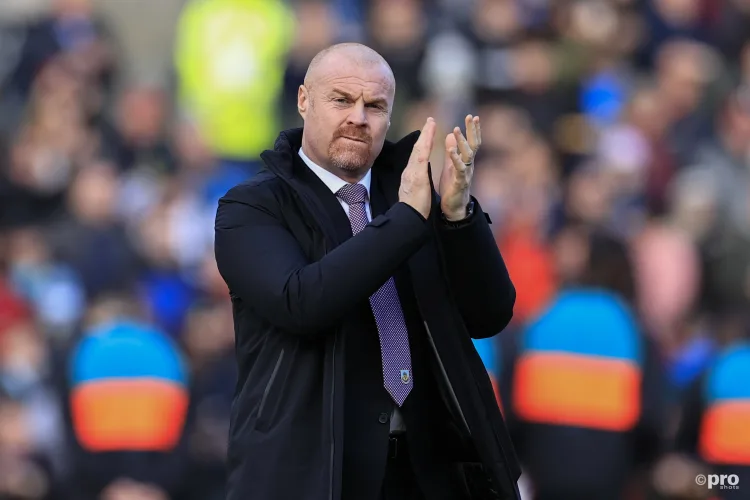
If men like Ralf Rangnick are considered progressive auteurs of the game, Dyche is the polar opposite.
Made in his image, Burnley are the antithesis of football, the club that stops the game being played in order to win before anything else.
They adopt a 4-4-2 and haven’t wavered from this approach once this season. It’s a formation so synonymous to them, you can practically hear Mike Bassett’s yells.
Dyche asks his side to defend deep and contain, a system of anti-ball in which they are given a pass for given the quality of their players compared to the rest of the Premier League. It is ‘park the bus’ at its finest.
Getting the most from what he has
Burnley’s average possession this season is below 39%. That’s the poorest record in the league by some distance.
So if keeping the ball isn’t their forte, just how do they move the ball towards dangerous areas?
It’s a burning question you no doubt already know the answer to: they like to play it long. In fact, around 42 per cent of their passes so far this season have been lofted, bypassing transitions and heading directly to dangerous areas. This avoids any issues with the opposition's press.
Their backline hardly reeks of ball-players. Indeed, they recognise what they are and their lack of technical ability, utilising instead their physicality and rigorous focus on winning second balls.
They spray out passes to a tight cluster on the flanks. Positioning is key. Players are unlikely to outmanoeuvre the players they come up against, but they can outwit them.
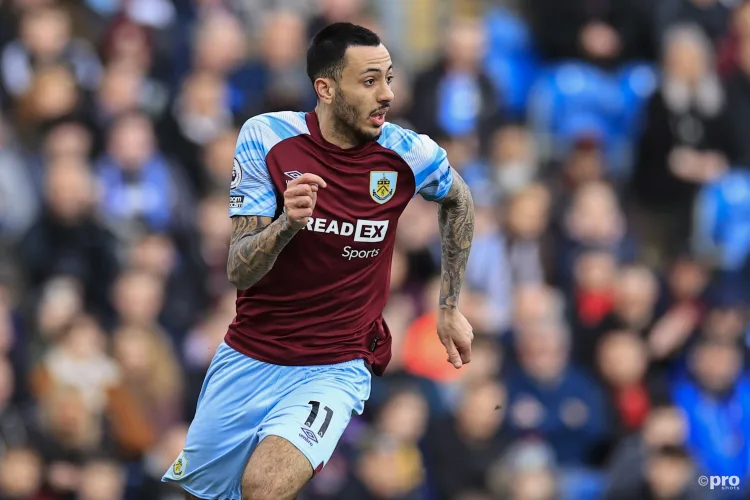
Jay Rodriguez was playing an auxiliary attacker role alongside Chris Wood before the New Zealand forward’s £25 million move to Newcastle. Now he works alongside Wout Weghorst, dropping just a bit deeper behind. Dwight McNeil, highly scrutinised recently, tended to come from midfield and was the person who would feed in the striking pair after latching onto loose balls.
The beginning of their move starts with their goalkeepers, who seldom go short or play out from the back. In principle with the players outfield, over 90 per cent of their kicks go long.
But while goalkeepers are asked to channel his inner Bruce Grobbelaar and hoof the ball into the stratosphere, they are also asked to be mobile.
Indeed, topping Liverpool and Man City, who come in first and secondly, respectively, Dyche asks his keeper to sweep - and consequently, their shot-stoppers have the highest distance from goal per defensive actions out of all the Premier League.
In essence, the formula is about pure simplicity and disrupting the opposing team. It’s not pretty. It’s essentially anti-football, the game’s antagonist looking to smash technical fortitude through pure positional acumen and simplicity in possession.
Confusion under Rangnick
Indeed, it’s no secret Man Utd have been enduring something of an identity crisis in the post-Ferguson era. And it seems to be getting worse as the side have not won a trophy since 2016.
They have explored numerous antidotes: from the sentimental (Ole Gunnar Solskjaer), to the polar opposite, the stat crowd’s favourite, Ralf Rangnick, a pioneer of modern hard pressing.
But even that’s thrown up problems. Unlike Leeds, the United squad hasn’t been coached to expend energy to this extent before. It leaves them red-faced and frustrated when they burn out, just like earlier this month at the Etihad.

There is a chicken and egg issue going on. Does Rangnick need to implement his tactics to cater to his players and their style or do the players need to learn to adapt to become a part of the formula? And just who needs to be moved on?
Rangnick still looks unsure of what his best formation is. He began with a 4-2-2-2, which was too lopsided and allowed for overloads in the wide areas. He remedied his with a 4-2-3-1, which so far has had mixed results.
The forward line, when spearheaded by Cristiano Ronaldo, lacks that killer spark when the side is instructed to press efficiently. They are not able to. The superstar’s goals are an addendum rather than a consequence of the team’s system.
Dyche’s simplicity could be key
Dyche coming in would undoubtedly continue the 4-2-3-1 - but instead of pushing forward out of possession, the idea would be to allow teams to have the ball and then counter. One change that will be made is the distribution. There is no chance ball-playing defenders such as Harry Maguire and Raphael Varane will be asked simply to hold the line when they possess such technical qualities. Dycheball will evolve in his sense.
United have the tallest team in the Premier League. One of the first jobs Dyche will do is keep Edinson Cavani. He would be a star in a Dyche team. A lonesome peripheral figure with clinical goal-scoring ability. He also is very technical, unlike some of the players leading the line at Burnley over the years, so Dyche will make use of him winning second balls further up the field, creating chances by feeding in United's more spritely attackers.
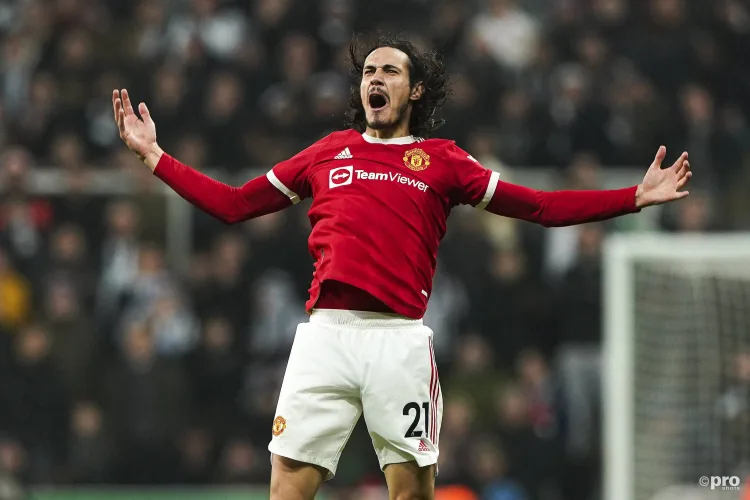
Burnley have a low turnover rate; they are unable to have the ball for large periods. Possession is just not Dyche’s game wherever he may be. Everything points to Dyche putting out the counter-attack, using the bags of energy and pace in the club’s locker to make brilliant breakaways conjured by intricate passing in their own half.
So summer purchases will be aimed towards not only at the ball-winning, spine fortifying midfielder Man Utd have been crying out for, but also one who has a degree of mobility - consider the opposite of turning fridges - but who importantly is able to ping out superb long-range passes. Think the love-child of Jonjo Shelvey and Arturo Vidal. (Actually don’t).
But even when penned back, the two holding midfielders would come in and United would be ready and able to spring a devastating attack. Their goals might, to a lesser extent, resemble the one scored by Man Utd against Bolton in 2006, the unrelenting sprint of a peach-faced Rooney to set up the breathless run Cristiano Ronaldo had made.
Sancho could thrive
There will be a level of ruthlessness at United with this Dyche-fused counter, particularly in those key games against Arsenal, Chelsea and Manchester City. And against the lesser team, attackers will be able to take on players and forge opportunities of their own making. But they of course need players who are capable. It spells the dropping of Marcus Rashford but a future long-term deal for Jadon Sancho.
Dyche, the first man to win at Anfield for over a thousand days. Dyche, the man with a Lancashire pub named after him, and Dyche the man who, more recently, sent Antonio Conte into a contained meltdown. No, he shouldn't be chosen, there are far better options, but he wouldn't be as bad a choice as some might believe.
Dycheism is about using what you have - and such pragmatism would serve any Premier League side a heavy dose of adequacy.
